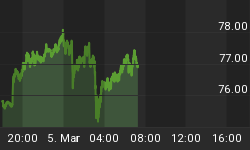Last year the California Public Employees' Retirement System, otherwise known as Calpers, cut the expected return on the funds it invests for plan beneficiaries from 7.5% to 7%. Seems like a modest change that should have a correspondingly limited impact on all concerned, right? Alas, that's not how things work in the realm of compound returns, where small initial changes produce hugely different outcomes. In fact, this is a bankruptcy-level event for some California cities.
California Cities' Pension Tab Seen Almost Doubling in 5 Years
(Bloomberg) - California cities and counties will see their required contributions to the largest U.S. pension fund almost double in five years, according to an analysis by the California Policy Center.
In the fiscal year beginning in July, local payments to the California Public Employees' Retirement System will total $5.3 billion and rise to $9.8 billion in fiscal 2023, according to the right-leaning group that examines public pensions.
The increase reflects Calpers' decision in December to roll back the expected rate of return on its investments. That means the system's 3,000 cities, counties, school districts and other public agencies will have to put more taxpayer money into the fund because they can't count as heavily on anticipated investment income to cover future benefit checks.
Calpers hasn't calculated the dollar impact of reducing the investment return over the years, said the group, which derived its estimate from guidance the system sent in January.
Including the costs paid by cities and counties that run their own systems, the fiscal 2018 tab will be at least $13 billion to meet retirement obligations for public workers, according to the analysis, which is based on actuarial reports and audited financial statements.
Barring any changes to pensions, "several California cities and counties will find themselves forced to slash other spending," the group wrote in its report. "The less fortunate will simply be unable to pay the bills they receive from Calpers or their local retirement system."
Some thoughts
Most cities and counties are already stretched to the limit with their current budgets. So, as the above article notes, a doubling of required pension contributions will leave only a handful of possible responses: Either they close libraries and parks, lay off teachers and firefighters and let potholes go unfilled, which lowers residents' quality of life. Or they raise taxes dramatically, which also makes life harder for all concerned.
Or they declare bankruptcy and slash pension benefits, which decimates quality of life for retired teachers, cops, etc.
All because of a 0.5% drop in expected returns - to a level that is still unrealistically high. If 5% is the eventual number the financial markets impose on the system, then the situation described here will seem like the good old days.
And California pensions aren't worst-in-class. That distinction belongs to Illinois:
Analysis: Pension fiasco spells future trouble for Illinois
(Madison Record) - The state's mountain of retirement-related debt is $267 billion, up from $203 billion in 2010, according to new analysis from the Illinois Policy Institute.
Researchers for the institute found that if broken down per household, the debt owed would amount to $56,000 per family - what could essentially amount to a year's net income for future taxes just to pay off old state and local retirement debts.
The pension debt breakdown is $129.9 billion in state pensions; $56.7 billion in state health benefits; $56.9 billion in local pensions; $12 billion in state pension bonds; $9.8 billion in local health benefits and $1.9 billion in local pension and benefit bonds.
Experts say the amount Illinois owes is a figurative fiscal time bomb that if left untreated could mean insolvency for the state.
"If this problem is not addressed municipalities in Illinois will likely go bankrupt and put the state itself at risk," Michael Lucci, vice president of policy for the institute, told the Record.
Many workers today retire younger in their 50s after 30 years of service and receive free retirement health insurance and full benefits for life. According to the institute, the average pension is worth $1.6 million.
The state's pension debt has been growing in recent years, having gotten profoundly worse during last decade's recession.
"The state makes payments on the debt every year, but it's less than the interest, which grows the debt," Lucci said. "Even if there was no recession of 2007, we would not be as far behind, but we would still be in trouble."
A federal bailout is looking inevitable at this point, which means trillions of new liabilities dumped onto a national debt that has already quadrupled in the past 16 years.
Â
















